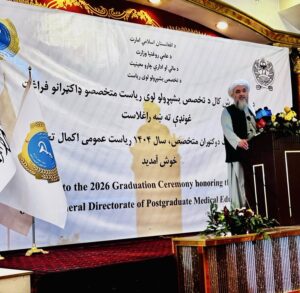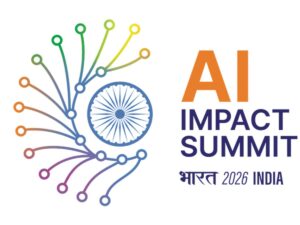People with disabilities in Afghanistan are facing significant challenges in both their personal and social lives. These challenges have, at times, prevented them from accessing their basic rights and participating in society.
A recent interview with 31 disabled young people, including 22 boys and 9 girls, highlights that unemployment, unequal treatment in society, and difficulties with marriage are among the major obstacles they encounter.
Economic issues
In many countries, people with disabilities receive special rights, including government-provided salaries. However, in Afghanistan, despite government support, the financial assistance for disabled individuals is significantly less than the monthly needs of the general population. The de-facto government of the Islamic Emirate has stated that the amount of assistance depends on the type and extent of the disability, a policy that many disabled people have expressed dissatisfaction with.
Some disabled individuals have not registered for government support programs due to a lack of awareness of their rights. In this report, 31 young disabled individuals who are registered with the Ministry of Martyrs and Disabled Affairs were interviewed. Findings show that 26 of them complained about the low salary and delays in payments from the ministry.
These 26 individuals explained that, during the republic, they received monthly salaries ranging from 5,000 to 30,000 afghanis. However, this amount has now been reduced to only 3,000 afghanis per month.
Ali, a 35-year-old from Kabul, shared that for over three years, his government payments have not been made fully. “There is no support from the government; during the previous regime, they paid a full year’s salary, but since the regime change, I have never received a complete salary.”
Twenty-seven of the young disabled individuals interviewed for this report, cited the lack of employment opportunities as their greatest challenge.
Ehsan, a visually impaired individual from Herat, stated that although he completed his studies in social sciences, he is unemployed due to a lack of job opportunities. “I have seven years of teaching experience at the Roshandilan Vocational High School and worked for nine months in a school for the blind, but due to political changes, I am now unemployed.”
Social and cultural challenges
The interview reveals that improper treatment towards disabled young people has led some of them to be unable to marry. Sixteen of the interviewees said that negative societal attitudes have prevented them from finding a spouse.
Ahmad, a 26-year-old from Balkh, explained that although he had decided several times to marry, societal beliefs stopped him from doing so. He said, “The family of the girl I proposed to said they would never give their daughter to a disabled person because they believed I wouldn’t be able to live or support a family. This discouraged me, and I thought, why does life have to be this way?”
Among the 32 people interviewed for this report, 16 said they were harmed by discriminatory behaviors and negative societal treatment, which have led to a loss of motivation to participate in society.
Farzana, a 33-year-old from Laghman who lost one of her legs in a mine explosion, stated, “People sometimes treat us badly. When I encounter such behavior, I avoid those individuals because they don’t value us.”
The interviewees in this report, mentioned that their disabilities were caused by various factors, including mine explosions, traffic accidents, and congenital conditions. Ten of the interviewees were born with disabilities, six were disabled due to mine explosions, and 14 others were injured due to natural disasters.
Abdul Munir, a 33-year-old from Parwan, recounted that he lost both of his legs at the age of 24 due to a mine explosion. “Our house was bombed, and my wife and one of my children died. I and another child were disabled. Since that day, life has been difficult.”
Limited access to healthcare and education
Ten of the interviewees reported that they do not have access to healthcare services, with some attributing their disabilities to incorrect medical prescriptions.
Rohullah, a resident of Laghman, shared that many disabled individuals lack access to educational and healthcare services. “The government or any organization has not provided us with medical supplies, and we also don’t have proper access to healthcare.”
Maryam, from Kabul, shared her painful experience: “When I was very sick, I went to a doctor who prescribed the wrong medication. I had a headache for three days, and then I noticed that my vision deteriorated. Despite treatment, I could never recover my sight.”
Mohammadullah, a psychologist, explained that discriminatory behaviors and mistreatment towards people with disabilities can cause psychological disorders and antisocial personality issues. “They feel that society has shut them out, and no one is supporting them.”
Support from international organizations
The International Committee of the Red Cross (ICRC) in Afghanistan has been providing extensive services to individuals with disabilities.
Parwiz Ahmad Faizi, a spokesperson for the ICRC in Afghanistan, stated, “Currently, out of 858 employees, 743 are persons with disabilities, making up 87% of the workforce in this program. The services include physiotherapy sessions, the production of prosthetic limbs, home visits, interest-free loans, and vocational training for people with disabilities.”
Najmuddin Helal, the head of the ICRC Orthopedic Center in Kabul, mentioned that a significant number of people with disabilities are registered at their hospital, where they receive medical services. “In all of our programs, more than 800 individuals work, and over 90% of them have disabilities. We have registered over 260,000 individuals with disabilities across our centers.”
Despite these efforts, the Ministry of Martyrs and Disabled Affairs reports that 190,000 individuals with disabilities are currently registered with the ministry and receive monthly financial support.
Faisal Khamosh, a spokesperson for the ministry, noted that some individuals born with congenital disabilities had previously registered in the military system, but their salaries were reduced when this fact became known.
On December 3, 2024, the European Union stated that people with disabilities in Afghanistan face serious challenges in accessing healthcare and rehabilitation services. The EU urged the international community to work towards creating an inclusive society and providing services to those in need in Afghanistan.






